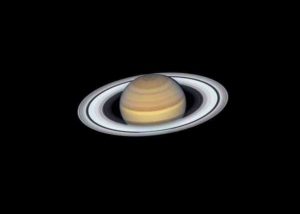
Inspire Curiosity With These Pop Science Books
December 24, 2024 - Lou Farrell
Revolutionized is reader-supported. When you buy through links on our site, we may earn an affiliate commission. Learn more here.
People love pop science books because these titles help them learn about new things through accessible language. Even those who do not consider them well-versed in the various subjects can get a lot from these possibilities due to the engaging writing style. Which ones are worth adding to your bookshelf or gifting to a fellow science lover?
“Breath: The New Science of a Lost Art”
Breathing is something we do without thinking, but in this title, author James Nestor suggests we should start paying more attention to it. He travels around the world, stopping to explore locations ranging from ancient burial sites to New Jersey choir schools.
Much of what you’ll learn in this pop science book allows applying new breathing techniques to your life — and some are as easy as consciously breathing through your nose. The author also spends time with people who study ancient techniques, learning about how those have affected breathing habits over time. Could the way you breathe affect exercise results, how well you sleep and more? That is one of the primary things suggested in this title.
Additionally, you’ll learn things such as how long to hold each breath and what happens when you breathe through the right nostril versus the left one. Breathing techniques are central parts of practices such as meditation, but after finishing this book, you’ll probably take them more seriously, too.
“Astrophysics for People in a Hurry”
The first word in the title of this book by Neil deGrasse may sound intimidating, but the author does an excellent job of answering essential questions about our universe. After reading this pop science book, you can confidently engage about topics such as the Big Bang Theory and the search for life on other planets at your next office party.
The short but fascinating chapters are easy to fit into your day. Instead of scrolling through the latest social media content on your phone, why not do something more productive by diving into the next part of this book while waiting at the doctor’s office or for your subway train to arrive during a work commute?
This title has enduring popularity, as evidenced by the more than a million copies sold since its release. You’ll also appreciate how skillfully the author breaks down otherwise hard-to-understand topics, helping you grasp them and see the universe’s mysteries in new ways. The humorous, witty tone will keep you smiling while reminding you that you’re definitely reading for pleasure and have not reverted to the days of high school reading assignments.
“What If?: Serious Scientific Answers to Absurd Hypothetical Questions”
Have you ever found yourself lying in bed at night or brushing your teeth, coming up with an off-the-wall idea and wondering, “Is it possible?” The best science books encourage you to think as does this one from Randall Munroe. It’ll help you realize that thinking of ideas others may find odd is perfectly okay and could be an excellent way to stimulate your brain.
People thinking outside the box has also contributed to newer practices that have become popular. For example, several decades ago, construction professionals would never have considered building houses with 3D printers, but that now happens frequently.
The author tackles fan-submitted questions about matters ranging from building a bridge with LEGO bricks to how fast a person could hit a speed bump and survive. He was once a robotics expert working with NASA but changed his career in a rather surprising way to draw web comics instead. That influence shows clearly within the book’s pages, making the title even more engaging.
Some of the answers are somewhat disturbing, telling readers what would happen if the sun suddenly stopped shining everywhere or if a person abruptly lost all of their DNA. However, you’ll appreciate that even the seemingly far-fetched content remains grounded in science and retains its accessible tone that has made the author such a crowd pleaser.
“The Body: A Guide for Occupants”
We all have bodies, but many people take them for granted unless things go wrong. This Bill Bryson title will give you a refreshed appreciation and a richer perspective of how the human body works. Think of it as a book version of the Body Wars theme park ride that thrilled visitors to Walt Disney World’s EPCOT Resort for nearly 20 years.
Although the body has many complex functions, Bryson lays them out in a clear style to keep you interested. The text covers topics such as evolution, infections and anatomy. You’ll also appreciate the many myths busted in this title, accompanied by many factoids that may help you score points during the next family quiz night. For example, did you know that the brain tells you how something should feel rather than only indicating how it does? That’s one reason why tickling yourself usually does not result in spontaneous giggles.
Whether you’re an aspiring medical student, someone who cannot get enough of the many televised hospital dramas or just a person eager to know more about the complex inner workings of your body, this title will take you on a fascinating head-to-toe journey.
“The Elements of Marie Curie: How the Glow of Radium Lit a Path for Women in Science”
Coverage of radium often centers on the women who worked in factories, painting it on watch faces while unaware of its health-related dangers. However, a lesser-known angle involves how Marie Curie, who discovered the radioactive element, opened new paths for women in science.
This pioneering female was often the only woman present at international science conferences. That remained so until decades later. Still, Curie remained a regular participant, frequently invited to clarify her discoveries and answer the questions of others in attendance.
Something that makes this book stand out from other science biographies is author Dava Sobel’s decision to simultaneously chronicle the lives and achievements of other females in science influenced by Curie. After reading it, you’ll have a strong sense of how pioneering people in their respective fields can have much bigger impacts than even they likely realized.
“Bad Science: Quacks, Hacks, and Big Pharma Flacks”
Many pop science books capture readers’ interest by encouraging them to learn more about topics they haven’t previously considered at length. In this title, Ben Goldacre takes readers on a slightly different journey, encouraging them not to believe everything they read at face value, even if the content comes from a seemingly reputable source.
The chapters — which feature many real-life examples — will teach you how to decipher science-based content to gauge its trustworthiness. For example, what can you tell about a study’s sample size? What is a double-blind study? Ever wonder why the placebo effect works? This book explains all that and more, helping you think more critically about the studies and other science content you find.
The best pop science books leave you thinking about the material long after the last page, and this title is certainly one of those. You’ll love the blunt writing style, bold tone and fact-filled pages.
The Best Pop Science Books to Put on Your List
Some bookstores have dozens of pop science books on their shelves, but these are some of the best. Because this list features a combination of older and newer titles, you’ll have plenty of variety to explore.
Revolutionized is reader-supported. When you buy through links on our site, we may earn an affiliate commission. Learn more here.
Author
Lou Farrell
Lou Farrell, Senior Editor, is a science and technology writer at Revolutionized, specializing in technological advancements and the impacts on the environment from new developments in the industry. He loves almost nothing more than writing, and enthusiastically tackles each new challenge in this ever-changing world. If not writing, he enjoys unwinding with some casual gaming, or a good sci-fi or fantasy novel.







